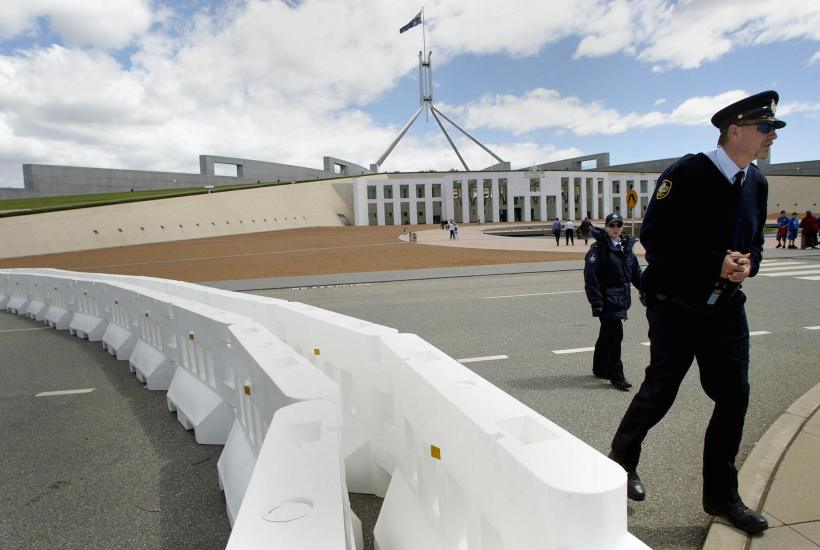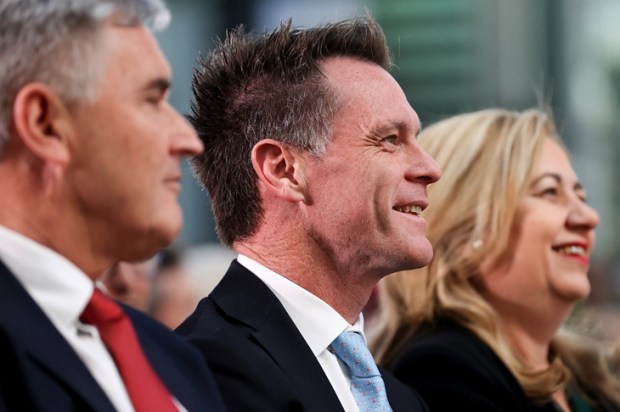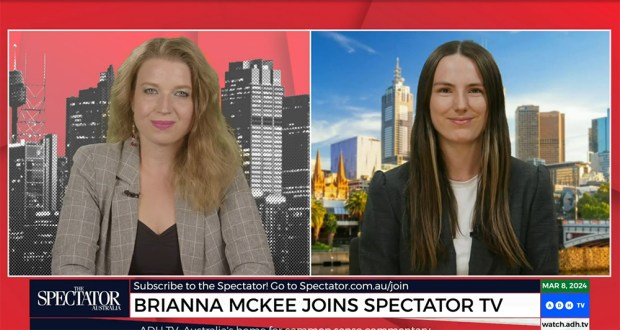Politicians are building more barriers to repel the views of their voters, and a directionless centre-right is at the forefront.
The latest preselection kerfuffle within the Victorian Liberal party is another in a long list of examples. In the past month, powerbrokers have pushed to protect sitting MHRs in Victoria from preselection challenge and to give an administrative committee the right to select candidates. They’re playing games, as usual, driven by factional advantage rather than democratic principle.
If it gets up, competing factions will have again joined to protect their vulnerable MPs and avoid open warfare before an election. Accountability to party members and motivated voters be damned.
Other parties have made similar moves to avoid accountability to members. Earlier this year the New South Wales Liberals rejected plebiscite preselections. More notably, in January the British Tories tried to establish Central Office control over all preselections. Their approach was nuclear: the proposal was to delete all sections of their party constitution dealing with preselections and hand them to a committee on candidates. The same committee would set all selection procedures arbitrarily.
This manoeuvring is going on at the same time as parties and governments worldwide ignore issues that their voters care about most.
These stories all share a form. First, a flight from party member accountability. Then, flight from democratic accountability, simply to avoid responding to “vulgar” voter concerns. The party structure that enables it is oligarchic; its shared political outlook is neo-aristocratic. It transcends factional divides.
I’ve argued elsewhere that primary-style preselections can help address this problem, but only if challenges to sitting MPs are embedded in the process. They’re essential to functioning democracy: we vote you in based on your principles and policies. If we don’t like what you do or say, we vote you out. It is as true for parties as for governments. If what you do or say energises us enough to join a party just to kick you out, so much the better. It’s how it should work, even if adulterated by factional head kicking and administrative games.
But barriers to people power aren’t confined to preselection matters. Other administrative, funding and campaigning processes combine to reduce party reliance on members, and indirectly, party responsiveness to voters.
The most important is public political funding. Party membership is crashing; donations are falling. For the feds, there is increasing reliance on big-dollar donors like, say, the 2016 donation of $1.75 million from former Goldman Sachs MD-turned-PM Malcolm Turnbull. Otherwise, the public is financing the election and administrative expenses of the major parties.
For example, for the 2016 Federal election, the Australian Electoral Commission gave the Liberals $24.2 million, the ALP $23.2 m, and the Greens $6.7 m. Of course, the rate per vote paid to parties is CPI-indexed – unlike the taxation that affects ordinary voters.
When donors and members flee, the majors’ response isn’t to change course. It is to detach themselves from the people. Existing public funding, and suggestions from insiders like former NSW Premier Mike Baird to increase it, insulate them from accountability. If you have enough public money, you don’t need donors, you don’t need members. All you need is a careerist secretariat, polling and advertising contracts, and a chequebook.
Many do not realise the extent of public political funding. In NSW, the scandal of grants to political parties for administrative expenses – partially paid in advance – is studiously avoided by all sides of politics. In 2016-17 eight political parties received $13.6 million just to run their parties for the year. On top of 2015 State election funding to parties totalling $18.25 million.
Set aside the hope that eliminating private donors from political finance will reduce corruption. That view is misguided, despite existing examples of policy influence gained through donor and other relationships. With the same political class culture and the same payoffs to government decision-making, payola will just slide sideways to more indirect and personal benefits. Sewer contents always run downhill.
Increase public funding and our politics will get worse, not better.
Fewer members and changes to campaign methods also detach major parties from the people. The ALP has always bought campaign staff or relied on union-funded personnel. Increasingly, the Liberals cannot rely on members to man their polling booths during general elections. All parties are willing to pay people to hand out how-to-votes on election day.
The more public money parties have, the more they can pay for people to replace volunteers who have left in disgust.
One thing about people you pay to campaign: they don’t have to like your principles, policies, or personnel. No wonder our parties like them.
Social media, analytics and automation, and web-based news allow small campaign teams to generate outsize effects. Revelations about David Brock’s media smear machine in the United States show how a small number of players can drive media narratives that sway voters. Increased cynicism may counter that effectiveness, but data-driven marketing and online manipulation of emotions are unstoppable forces. Again, increasing reliance on these channels means less concern over member disengagement.
There are more direct types of withdrawal from the people. Closed membership and arbitrary vetting of applicants for membership is common across parties. Internal party opponents or outspoken critics of party behaviour may be suspended or not allowed to re-join. Players can use anti-branch stacking provisions not only for protecting factional control but also for keeping out well-intentioned activists seeking policy change. Insiders can use attendance fee barriers to exclude rank and file members from important party forums. The administrative games are endless. Not to mention the occasional crossed-arm thug excluding the wrong faction from party meetings.
Then you can throw in party policy outsourcing, where big consultancies, unions, NGOs and lobbyists drive policy development. And MPs, party members and party voters just have to suck it up.
Much more of this and the major parties won’t need anyone. Well, until the entire parliament is populated by unstable crossbenchers put there by protest votes.
Democracies die, usually killed by the venality of the people and the incompetence of the class that rules them. Political parties die too when democratic structures hold them accountable for their failings. I know which I’d prefer.
Got something to add? Join the discussion and comment below.
Got something to add? Join the discussion and comment below.
Get 10 issues for just $10
Subscribe to The Spectator Australia today for the next 10 magazine issues, plus full online access, for just $10.


























Comments
Don't miss out
Join the conversation with other Spectator Australia readers. Subscribe to leave a comment.
SUBSCRIBEAlready a subscriber? Log in